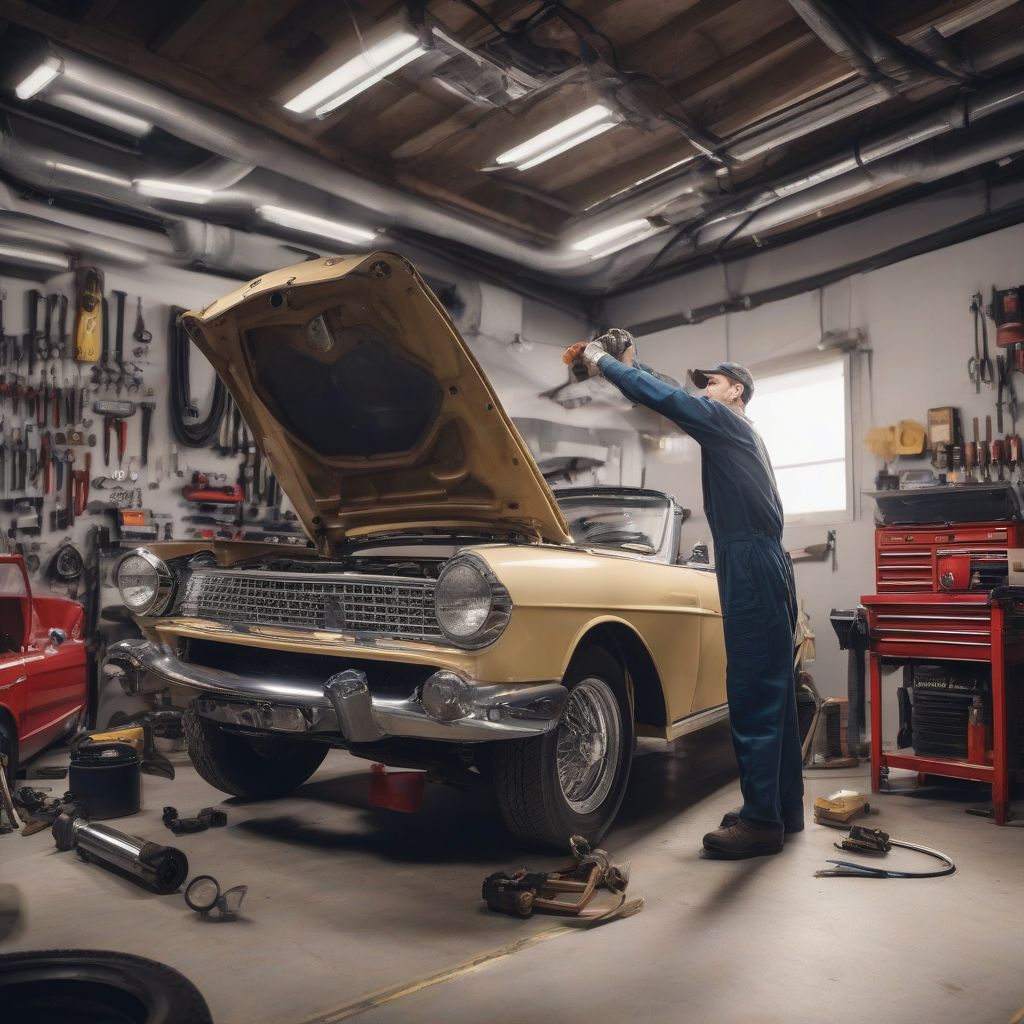Ever dreamt of cruising down the highway in a vintage Ford Mustang or a sleek Chevrolet Corvette? The allure of classic cars is undeniable, a blend of nostalgia, powerful engines, and timeless design. But stepping into the classic car market can feel like navigating a maze, especially for first-time buyers. Don’t worry, I’m here to guide you. Just like choosing healthy ingredients for a balanced diet, finding the perfect classic car requires careful research and an eye for detail. Let’s dive in and equip you with the knowledge to spot a good deal and make your classic car dreams a reality.
Understanding Your Wants vs. Needs
Before you start browsing listings, take some time to define your goals.
What’s Your Vision?
- Dream Car: Envision the car you’ve always desired. Is it a sporty roadster, a rugged off-roader, or a luxurious sedan?
- Intended Use: Will this be a weekend cruiser, a project car for restoration, or a potential investment?
- Budget: Set a realistic budget that includes the purchase price, potential restoration costs, insurance, and ongoing maintenance.
 Classic Car Show
Classic Car Show
Research, Research, Research
Knowledge is power in the classic car market.
Models and Market Value:
- Focus Your Search: Narrow down your choices to a few specific models that fit your criteria.
- Price Trends: Explore online resources like Hemmings, Classic.com, and Bring a Trailer to understand current market values and recent sale prices for your chosen models.
Common Issues:
- Model-Specific Problems: Research common rust spots, mechanical issues, and parts availability for your chosen models. This knowledge will help you during inspections.
Inspecting a Potential Classic Car
This is where your inner detective comes in!
Visual Inspection:
- Rust is the Enemy: Thoroughly check the body panels, undercarriage, frame rails, and wheel wells for any signs of rust or previous repairs. Pay close attention to areas prone to moisture.
- Paint and Bodywork: Look for inconsistencies in paint color, overspray, or signs of previous bodywork. These could indicate accident damage or poorly executed repairs.
- Chrome and Trim: Examine the condition of the brightwork. Pitting, dents, or missing pieces can be expensive to restore.
Mechanical Check-Up:
- Engine Bay: Inspect for leaks, corrosion, and modifications. A well-maintained engine bay indicates responsible ownership.
- Start and Run: Listen for any strange noises, excessive smoke, or difficulty starting. Ideally, see the car cold-started to get a true sense of its condition.
- Test Drive: If possible, take the car for a test drive to assess its handling, braking, and overall feel.
Documentation Matters:
- Vehicle History Report: Obtain a vehicle history report from Carfax or AutoCheck to uncover any past accidents, title issues, or mileage discrepancies.
- Service Records: Ask the seller for service records. A well-documented maintenance history is a good sign.
The Art of Negotiation
Once you’ve found a classic car that ticks the right boxes, it’s time to negotiate a fair price.
Leverage Your Knowledge:
- Market Value: Use your research on recent sale prices to determine a reasonable offer.
- Needed Repairs: Factor in the cost of any repairs or restoration work you anticipate needing.
- Walk-Away Power: Don’t be afraid to walk away from a deal if you feel the price is too high or the seller is not being transparent.
 Classic Car Mechanic
Classic Car Mechanic
Expert Opinions and Resources
Don’t hesitate to seek professional help.
Pre-Purchase Inspection:
- Expert Mechanic: Consider having a qualified mechanic specializing in classic cars perform a pre-purchase inspection. They can identify potential issues that might not be visible to the untrained eye.
- Appraisals: If you’re considering a high-value classic car, a professional appraisal can provide an accurate valuation.
Classic Car Communities:
- Online Forums and Clubs: Joining online forums and classic car clubs specific to your chosen model can provide invaluable advice, resources, and support throughout your journey.
Conclusion
Finding a good deal in the classic car market is an exciting process, but it requires careful research, thorough inspection, and savvy negotiation skills. Remember, just like maintaining a healthy lifestyle requires ongoing effort, owning a classic car comes with responsibilities. However, the thrill of driving your dream classic car, a piece of automotive history, will be well worth the effort!
Now, it’s your turn! What classic car have you always dreamt of owning? Share your thoughts and questions in the comments below!
[amazon bestseller=”classic car restoration”]
